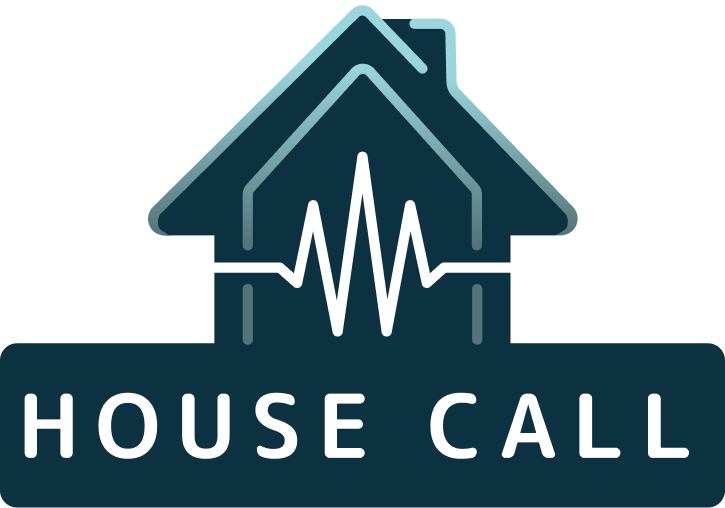The healthcare industry is rapidly shifting towards home healthcare, driven by a combination of technological advancements, aging populations, and a growing preference for personalized care. According to a report by Grand View Research, the global home healthcare market generated a revenue of USD 390,244.6 million in 2023 and is expected to reach USD 666,912.9 million by 2030, reflecting the increasing demand for home-based care solutions (Grand View Research, 2021). In this post, we’ll explore the key trends driving this growth and how these shifts are revolutionizing healthcare in 2024.
Increased Demand for Concierge Nursing and Private Duty Nursing
Concierge Nursing
The rise in concierge nursing has been fueled by a desire for flexible, individualized care. This model not only offers patients convenience and comfort but also leads to better health outcomes due to the personalized attention they receive (Nurse Registry, 2023). Patients
recovering from surgery, managing chronic conditions, or simply seeking wellness services are increasingly turning to private nurses for this type of high-touch care
Private Duty Nursing
Similarly, private duty nurses play a critical role in managing more complex healthcare needs. The U.S. Bureau of Labor Statistics projects that the demand for home healthcare aides, including private duty nurses, will grow by about 25% from 2021 to 2031, which is
significantly faster than the average for all occupations (Bureau of Labor Statistics, 2023). This growth is driven by an aging population and a preference for at-home care over lengthy hospital stays, particularly for post-surgical recovery or chronic illness
management.
The Role of Technology in Home Healthcare
Home Care Scheduling Software
Home care scheduling software is now an essential tool for organizing nurse shifts and patient appointments. Grand View Research notes that the use technology is home healthcare is driving innovation in the market (2023). These software platforms, including nurse scheduling apps, help healthcare providers manage complex schedules, ensuring patients receive timely care while minimizing gaps.
For private duty nurses, specialized software streamlines administrative tasks like billing, record-keeping, scheduling, and patient management. Technological innovation and software tools allow providers to use their time for efficiently and streamline patient care outside tradition hospital settings (Allied Market Research, 2024).
Telehealth and Remote Monitoring
The use of telehealth and remote monitoring tools has surged, especially during the COVID-19 pandemic. These technologies allow nurses to track patients’ health in real time without requiring in-person visits, reducing hospital readmissions and improving patient outcomes. The global telehealth market is projected to reach $559.52 billion by 2027 (MyWestford, 2024), further integrating remote healthcare into mainstream care practices.
Specialized At-Home Health Services on the Rise
At-Home IV Therapy
The demand for at-home IV therapy is growing, especially for hydration, vitamin infusions, and ongoing treatments like IV antibiotics. A study on home infusion therapy found “Home
infusion care can provide safe, clinically effective care improve patients’ quality of life and reduce healthcare costs” (Polinski et al., 2017, 78). Patients benefit from receiving personalized treatments at home and avoiding hospital stays.
Post-Surgery Care and Recovery at Home
Growth in Non-Medical Home Care Services
Companionship and Personal Care
Aging Population and Home Care
Benefits of At Home Healthcare for Patients and Providers
For Patients
For Providers
For healthcare providers, especially nurses, home healthcare offers greater flexibility and job satisfaction. A report by the American Nurses Association found that nurses working in home care settings reported higher job satisfaction due to increased autonomy and personalized patient care (Weston, 2010). Additionally, tools like nurse scheduling apps and home care scheduling software help streamline their workload, allowing them to focus on delivering high-quality care.
Conclusion
The trends in home healthcare are clear: concierge nursing, private duty nursing, and specialized services like at-home IV therapy and post-surgery care are transforming the way healthcare is delivered. With advancements in home care technology and scheduling software, both patients and providers are benefiting from more personalized, efficient, and flexible care models. As the demand for at-home healthcare continues to grow, platforms like House Call are at the forefront of connecting patients with skilled homecare nurses for personalized in-home care.
Whether you’re a patient looking for at-home care or a nurse seeking flexible work opportunities, House Call offers the tools and resources you need to thrive in the expanding home healthcare industry.
References
- Allied Market Research. (2024). Home Healthcare Software Market to Reach $11.4 Billion Globally by 2033, at 12.6% CAGR. GlobeNewswire. https://www.globenewswire.com/en/news-release/2024/09/16/2946665/0/en/Home-Healthcare-Software-Market-to-Reach-11-4-Billion-Globally-by-2033-at-12-6-CAGR-Allied-Market-Research.html
- Arsenault-Lapierre G, Henein M, Gaid D, Le Berre M, Gore G, Vedel I. (2021) “Hospital-at Home Interventions vs In-Hospital Stay for Patients With Chronic Disease Who Present to the Emergency Department: A Systematic Review and Meta analysis.” JAMA Network Open.4 (6) https://jamanetwork.com/journals/jamanetworkopen/fullarticle/2780783.
- Grand View Research. (2023) Home Healthcare Market Size, Share & Trends Analysis Report, 2024-2030. 2021.
https://www.grandviewresearch.com/industry-analysis/home-healthcare-industry - MyWestford. (2024). The Rise of Telehealth: Transforming Healthcare Delivery in 2024.
https://www.mywestford.com/blog/the-rise-of-telehealth-transforming-healthcare-delivery-in-2024 - Nurse Registry. (2023). What is a Concierge Nurse? https://www.nurseregistry.com/blog/what-is-a-concierge-nurse
- Polinski, J. M., Kowal, M. K., Gagnon, M., Brennan, T. A., & Shrank, W. H. (2017). Home infusion: Safe, clinically effective, patient preferred, and cost saving. Healthcare, 5(1- 2), 68-78. https://www.sciencedirect.com/science/article/abs/pii/S2213076415300506?via%3Dihub
- U.S. Bureau of Labor Statistics. (2023). Occupational projections overview, 2021-31. Monthly Labor Review
https://www.bls.gov/opub/mlr/2023/article/occupational-projections-overview-2021-31.htm - United Nations, Department of Economic and Social Affairs, Population Division. (2020). World Population Ageing 2020 Highlights.
https://www.un.org/development/desa/pd/sites/www.un.org.development.desa.pd/
files/undesa_pd_2020_world_population_ageing_highlights.pdf - Weston, M.J., (2010) “Strategies for Enhancing Autonomy and Control Over Nursing Practice” OJIN: The Online Journal of Issues in Nursing Vol. 15, No. 1, Manuscript 2.
https://ojin.nursingworld.org/table-of-contents/volume-15-2010/number-1-january-2010/enhancing-autonomy-and-control-and-practice

 Login
Login
1 reply on “Emerging Trends in In-Home Healthcare: Revolutionizing At-Home Care in 2024”
[…] In-home healthcare caters perfectly to this dynamic. It offers the flexibility to accommodate your busy life while creating an environment where your “buy-in” matters. Providers and patients work together to ensure the care aligns with medical needs and personal preferences. […]